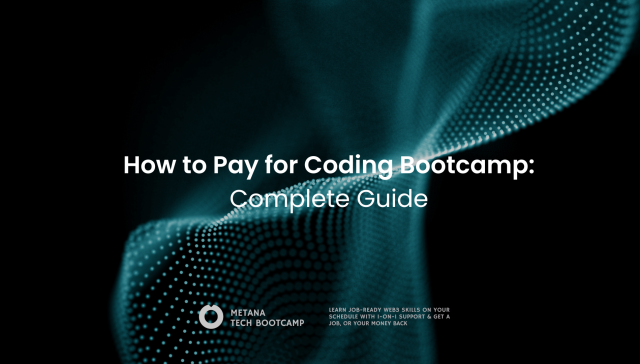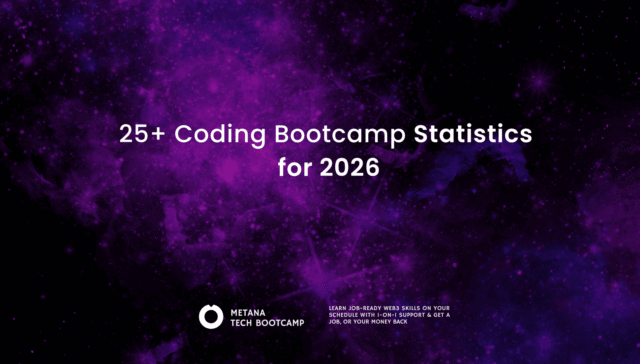TL;DR: The 13 Essential Blockchain Analyst Skills
- Data Analysis and Statistical Knowledge – Master statistics, probability, and data analysis methodologies
- Programming Languages – Python and SQL proficiency for data manipulation and queries
- Blockchain Fundamentals – Deep understanding of protocols, consensus mechanisms, and network architecture
- Smart Contract Analysis – Read and interpret Solidity code and contract interactions
- Blockchain Explorers – Expert use of Etherscan, BscScan, and similar tools
- Analytics Platforms – Proficiency in Dune Analytics, Nansen, and Chainalysis
- Data Visualization – Create compelling dashboards with Tableau and Power BI
- DeFi Protocol Understanding – Knowledge of lending, DEXs, and yield farming mechanisms
- NFT and Token Economics – Analyze marketplace dynamics and tokenomics models
- Regulatory Compliance – AML/KYC knowledge and compliance tracking
- Communication Skills – Translate technical findings into actionable business insights
- Critical Thinking – Problem-solving and analytical reasoning for complex investigations
- Personal Branding – Build your reputation through public analysis and community engagement
The blockchain industry is experiencing unprecedented growth, creating a surge in demand for skilled professionals who can analyze on-chain data and extract meaningful insights. Whether you’re aiming to become a blockchain analyst, blockchain data analyst, on-chain investigator, or crypto compliance analyst, mastering the right skill set is crucial for landing your dream role.
According to Metana expertise, a leading blockchain education platform, the most successful blockchain analysts combine technical proficiency with domain expertise and strong communication abilities. This guide breaks down the 13 essential skills that employers are actively seeking in blockchain analyst candidates.
Core Technical Skills
1. Data Analysis and Statistical Knowledge
At its core, a blockchain analyst role revolves around interpreting complex datasets. You need strong foundational knowledge in statistics, probability, and data analysis methodologies. Understanding concepts like correlation, regression analysis, and hypothesis testing enables you to identify patterns in blockchain transactions and user behavior.
Blockchain data analysts work with massive datasets containing millions of transactions. The ability to clean, process, and analyze this data accurately separates exceptional candidates from average ones. You should be comfortable working with large-scale data structures and applying statistical methods to draw actionable conclusions about network activity, token flows, and market trends.
2. Programming Languages: Python and SQL
Programming proficiency is non-negotiable for modern blockchain analysts. Python stands out as the most versatile language for blockchain analytics due to its extensive libraries like Pandas, NumPy, and Web3.py. These tools allow you to manipulate blockchain data, create automated scripts, and build custom analytics solutions.
SQL expertise is equally critical. Blockchain data is often stored in relational databases, and platforms like Dune Analytics rely heavily on SQL queries.Mastering SQL enables you to extract specific transaction data, join multiple datasets, and create complex queries that reveal hidden insights. Combining Python for data manipulation with SQL for database querying creates a powerful analytical toolkit that most employers expect from day one.
3. Blockchain Fundamentals and Protocol Knowledge
You cannot analyze what you don’t understand. Deep knowledge of blockchain technology, consensus mechanisms, and network architecture is essential. This includes understanding how transactions are validated, how blocks are created, and how different blockchain protocols like Ethereum, Solana, and Bitcoin operate.
Blockchain developers build the systems, but blockchain analysts must understand these systems to interpret their data correctly. Knowledge of smart contracts, gas fees, transaction finality, and network congestion helps you contextualize the data you’re analyzing. Understanding the difference between Layer 1, Layer 2, Layer 3 blockchain solutions, cross-chain bridges, and various consensus algorithms allows you to provide more nuanced insights.
4. Smart Contract Analysis
Smart contracts power decentralized applications, DeFi protocols, and NFT marketplaces. As an on-chain investigator or blockchain data analyst, you need to read and understand smart contract code, typically written in Solidity for Ethereum-based networks.
You don’t necessarily need to write production-level smart contracts, but understanding how they function, identifying common vulnerabilities, and tracking contract interactions is crucial. This skill becomes especially important when investigating suspicious activities, tracking fund flows through DeFi protocols, or analyzing token economics. Being able to decode transaction data and understand what functions were called in a smart contract interaction sets senior analysts apart from junior ones.
Essential Tools and Platforms
5. Blockchain Explorers (Etherscan, Blockchain.com)
Blockchain explorers are your primary windows into on-chain activity. Proficiency with tools like Etherscan, BscScan, and Solscan allows you to track individual transactions, examine wallet addresses, analyze token transfers, and understand contract interactions.
Advanced explorer usage goes beyond simple transaction lookups. You should know how to use advanced filters, track token approvals, identify contract creation transactions, and analyze internal transactions. These explorers also provide API access, which you can leverage to automate data collection and build custom monitoring solutions.
6. Analytics Platforms (Dune Analytics, Nansen, Chainalysis)
Specialized blockchain analytics platforms have become industry standards. Dune Analytics allows you to write SQL queries against blockchain databases and create shareable dashboards. Nansen provides wallet labeling and smart money tracking. Chainalysis offers investigation tools used by law enforcement and compliance teams.
Each platform has unique strengths~Dune for custom queries, Nansen for wallet intelligence, Chainalysis for compliance and investigation. Crypto compliance analysts particularly need expertise with tools that track suspicious transactions and ensure regulatory adherence.
7. Data Visualization Tools (Tableau, Power BI)
Raw data means nothing without effective presentation. Data visualization skills transform complex blockchain metrics into understandable charts, graphs, and dashboards. Tools like Tableau and Power BI allow you to create interactive visualizations that communicate findings to both technical and non-technical stakeholders.
Your ability to visualize transaction flows, network growth, user retention, and protocol metrics can directly impact business decisions. Good visualization tells a story with data, highlighting trends, anomalies, and opportunities that might be missed in spreadsheets. Many blockchain projects hire analysts specifically to create public-facing dashboards that showcase their ecosystem’s health and growth.
Domain Knowledge and Specialization
8. DeFi Protocol Understanding
Decentralized Finance represents one of blockchain’s most complex and rapidly evolving sectors. Understanding how lending protocols, decentralized exchanges, yield farming, and liquidity pools work is essential for analyzing DeFi ecosystems.
You should grasp concepts like total value locked (TVL), impermanent loss, automated market makers (AMMs), and flash loans. When analyzing a DeFi protocol, you need to track multiple metrics simultaneously—liquidity depth, trading volume, user retention, and token distribution. This specialized knowledge allows you to assess protocol health, identify risks, and understand competitive dynamics within the DeFi landscape.
9. NFT and Token Economics
The NFT market and tokenomics require distinct analytical approaches. For NFTs, you need to understand marketplace dynamics, rarity calculations, holder distribution, and wash trading detection. Token economics involves analyzing supply schedules, emission rates, token utility, and holder concentration.
Blockchain data analysts specializing in tokens must track metrics like circulation supply, burn mechanisms, staking ratios, and governance participation. Understanding how token design influences user behavior and protocol sustainability has become increasingly valuable as projects seek to optimize their economic models.
10. Regulatory Compliance and AML Knowledge
As blockchain technology matures, regulatory scrutiny intensifies. Crypto compliance analysts must understand Anti-Money Laundering (AML) regulations, Know Your Customer (KYC) requirements, and jurisdiction-specific cryptocurrency laws.
This skill involves identifying suspicious transaction patterns, tracking funds through mixers and privacy protocols, and maintaining audit trails. Platforms like Chainalysis and Elliptic have built entire businesses around compliance analytics. Understanding how to flag high-risk transactions, create compliance reports, and work within regulatory frameworks makes you invaluable to exchanges, financial institutions, and blockchain projects operating in regulated markets.
Soft Skills and Professional Development
11. Communication and Reporting Skills
Technical expertise alone won’t guarantee success. You must translate complex blockchain data into clear, actionable insights for diverse audiences. This means writing comprehensive reports, creating executive summaries, and presenting findings to stakeholders who may lack technical backgrounds.
Strong communication skills include knowing what to emphasize and what to omit. Executives need high-level insights, while developers need technical details. Your ability to adjust your communication style based on your audience determines how effectively your analysis drives decisions. Documentation skills also matter, maintaining clear records of your methodologies and findings ensures reproducibility and builds trust.
12. Critical Thinking and Problem-Solving
Blockchain analytics often involves investigating unknowns with limited information. Critical thinking helps you formulate the right questions, design appropriate analytical approaches, and interpret ambiguous data. When analyzing suspicious activity, you need to think like a detective, following transaction trails and building evidence-based conclusions.
Problem-solving skills extend to technical challenges as well. APIs break, data formats change, and new protocols emerge constantly. Your ability to adapt, learn quickly, and find creative solutions to data challenges determines your long-term success. The blockchain space evolves rapidly—analysts who can independently solve novel problems remain in high demand.
13. Personal Branding and Community Engagement
Building a strong personal brand has become increasingly important for blockchain analysts. Sharing your analysis publicly through Twitter threads, Medium articles, or Dune dashboards demonstrates expertise and attracts opportunities. Many successful analysts gained recognition by consistently publishing insights about emerging protocols, market trends, or on-chain patterns.
Community engagement goes beyond self-promotion. Contributing to blockchain forums, participating in governance discussions, and collaborating on open-source analytics projects builds your network and reputation. Your public work becomes your portfolio, showcasing both technical skills and communication abilities.
How to Build These Skills
Developing blockchain analyst expertise requires structured learning combined with hands-on practice. To build your skills effectively, consider the following steps:
- Start with foundational courses covering data analysis, Python, and SQL.
- Layer on blockchain-specific knowledge through specialized programs offering practical experience with real on-chain data.
- Utilize platforms like Metana that provide comprehensive blockchain education bridging traditional data analysis and blockchain-specific skills.
- Engage in personal projects to demonstrate your capabilities, such as building custom Dune dashboards analyzing trending protocols, investigating interesting on-chain phenomena, or tracking whale wallet activity.
- Use these projects as portfolio pieces to prove your skills to potential employers.
- Consider specializing in one area~such as DeFi, NFTs, compliance, or a specific blockchain ecosystem—to differentiate yourself in the job market.
Bottom Line
The blockchain analyst role sits at the intersection of technology, finance, and investigation. Mastering these 13 skills from technical proficiencies like Python and SQL to soft skills like communication and personal branding positions you for success in this dynamic field. Whether you pursue roles as a blockchain data analyst, on-chain investigator, or crypto compliance analyst, these competencies form the foundation of a thriving career.
The barrier to entry continues to lower as educational resources improve, but the demand for skilled analysts continues to outpace supply. Start building your skill set today, engage with the blockchain community, and create work that showcases your unique analytical perspective. The opportunities in blockchain analytics have never been more abundant for those willing to invest in developing comprehensive, market-relevant skills.
[Learn more about Metana Web3 Blockchain Bootcamp]
Frequently Asked Questions
What are the essential skills to become a blockchain analyst?
You need data analytics, programming (Python, SQL), blockchain fundamentals, and domain knowledge in DeFi, NFTs, and smart contracts. Strong communication skills and familiarity with tools like Dune Analytics and Chainalysis are also critical.
Which tools should a blockchain analyst learn?
Tools like Dune Analytics, Chainalysis, Etherscan, Nansen, Tableau, and Power BI are essential for blockchain investigation and reporting. Proficiency with at least two major analytics platforms significantly increases employability.
Do I need a technical degree to become a blockchain analyst?
No. While helpful, a degree isn’t required. Platforms like Metana offer practical, hands-on training in blockchain analytics that can prepare you for industry roles without traditional computer science credentials.
How important is personal branding for a blockchain analyst?
Building a strong personal brand can open job opportunities, establish credibility, and position you as a thought leader in the blockchain space. Public dashboards, Twitter analysis, and community contributions serve as your portfolio.
Can I become a blockchain analyst without coding experience?
Basic coding skills in Python and SQL are highly recommended, but you can start with data tools and learn programming over time. Most successful analysts develop programming skills through structured courses and practical projects.







